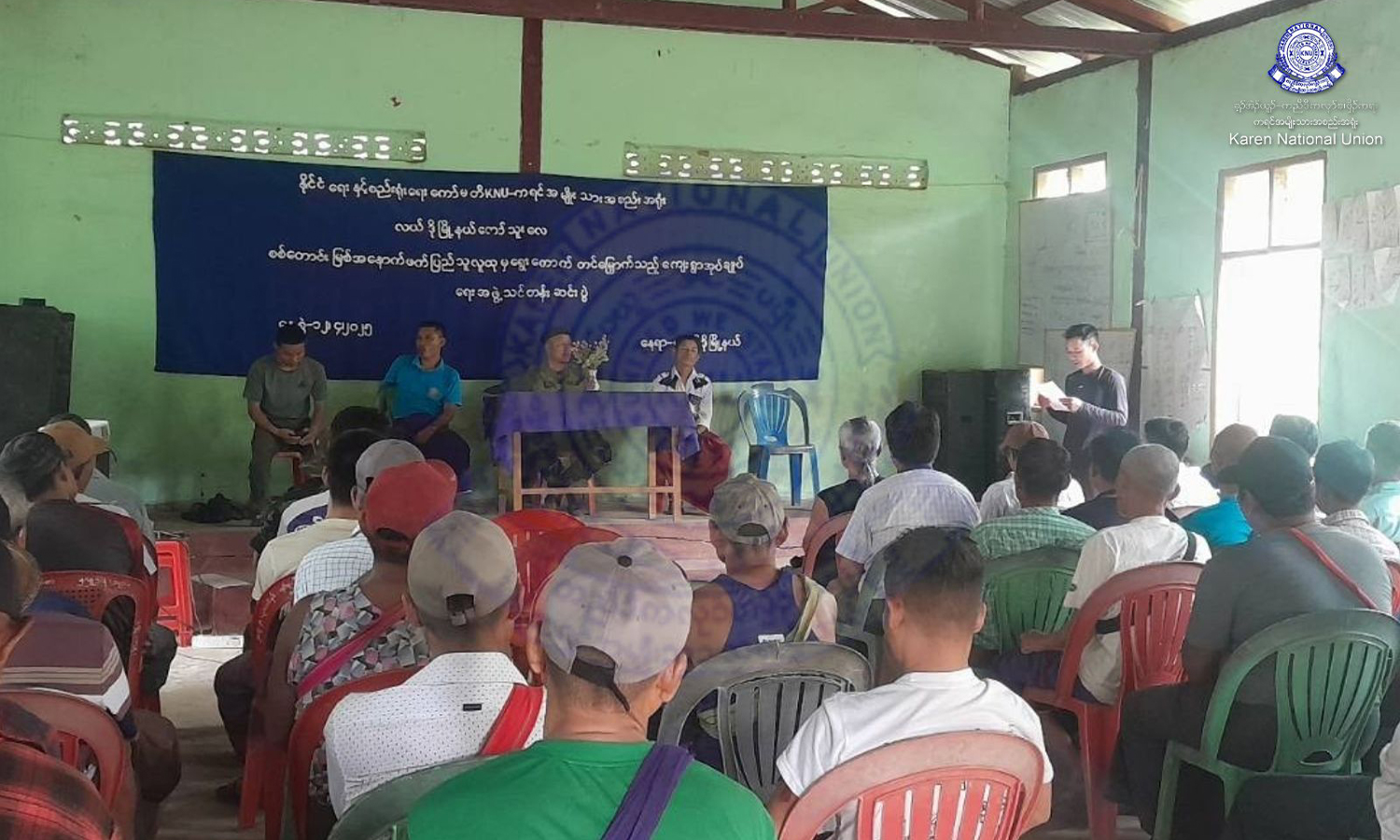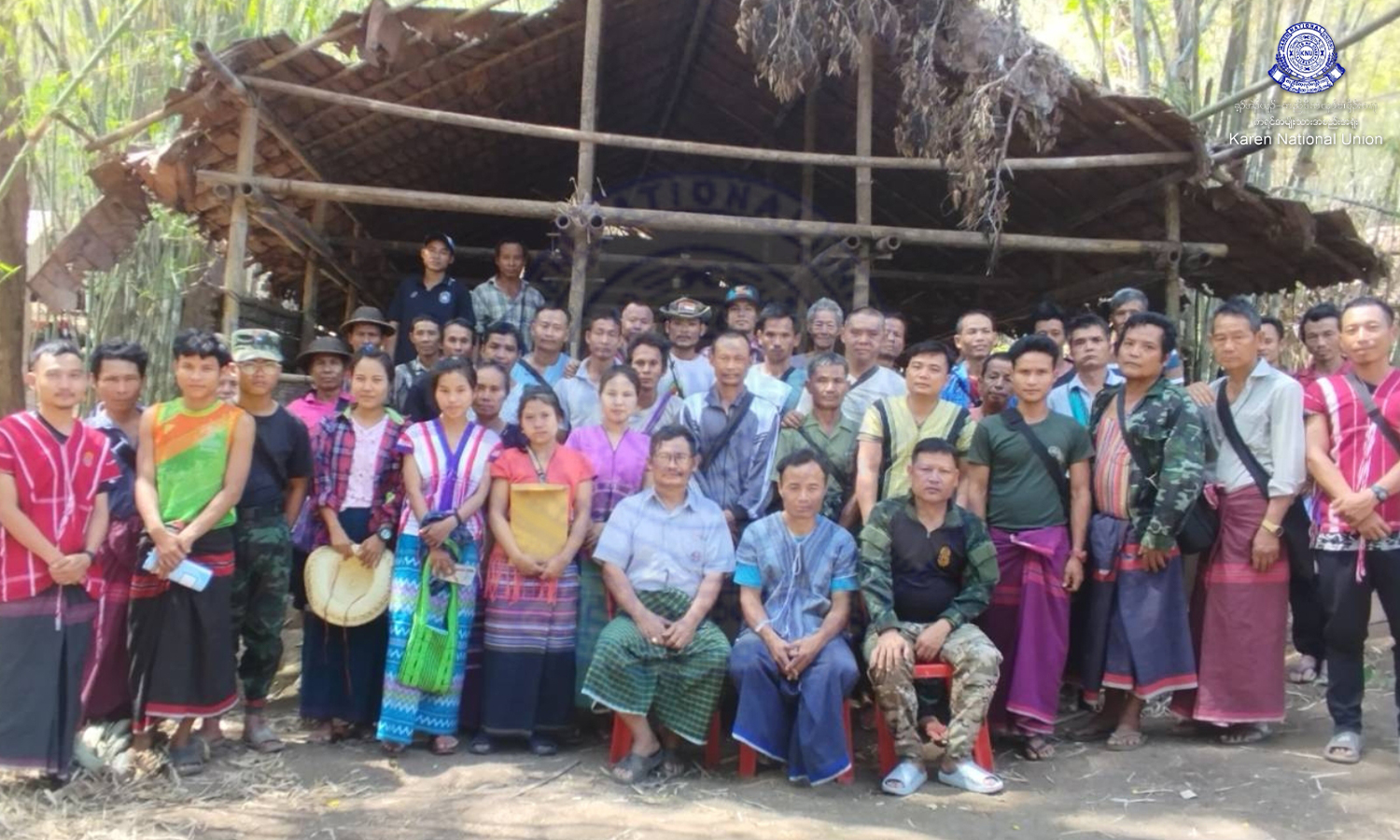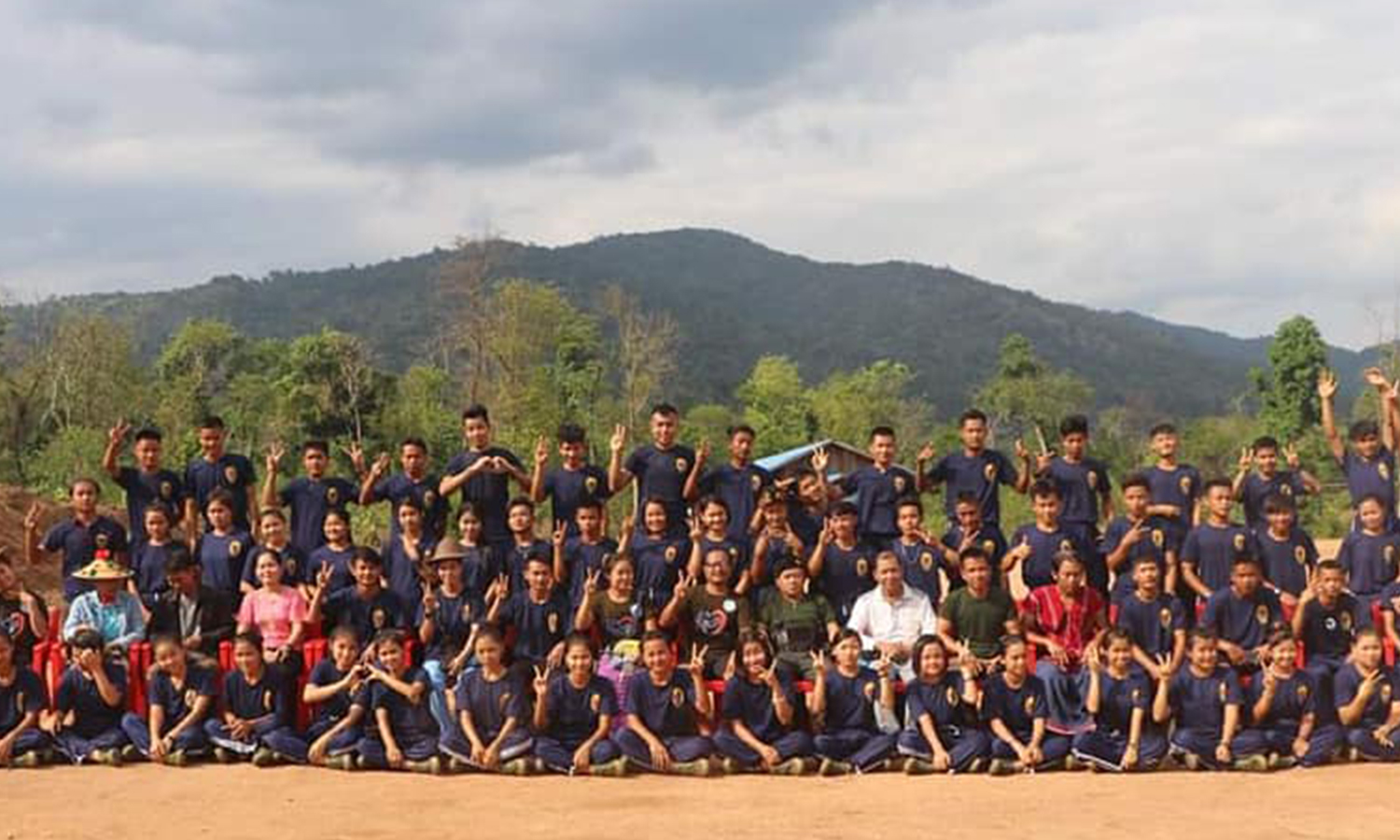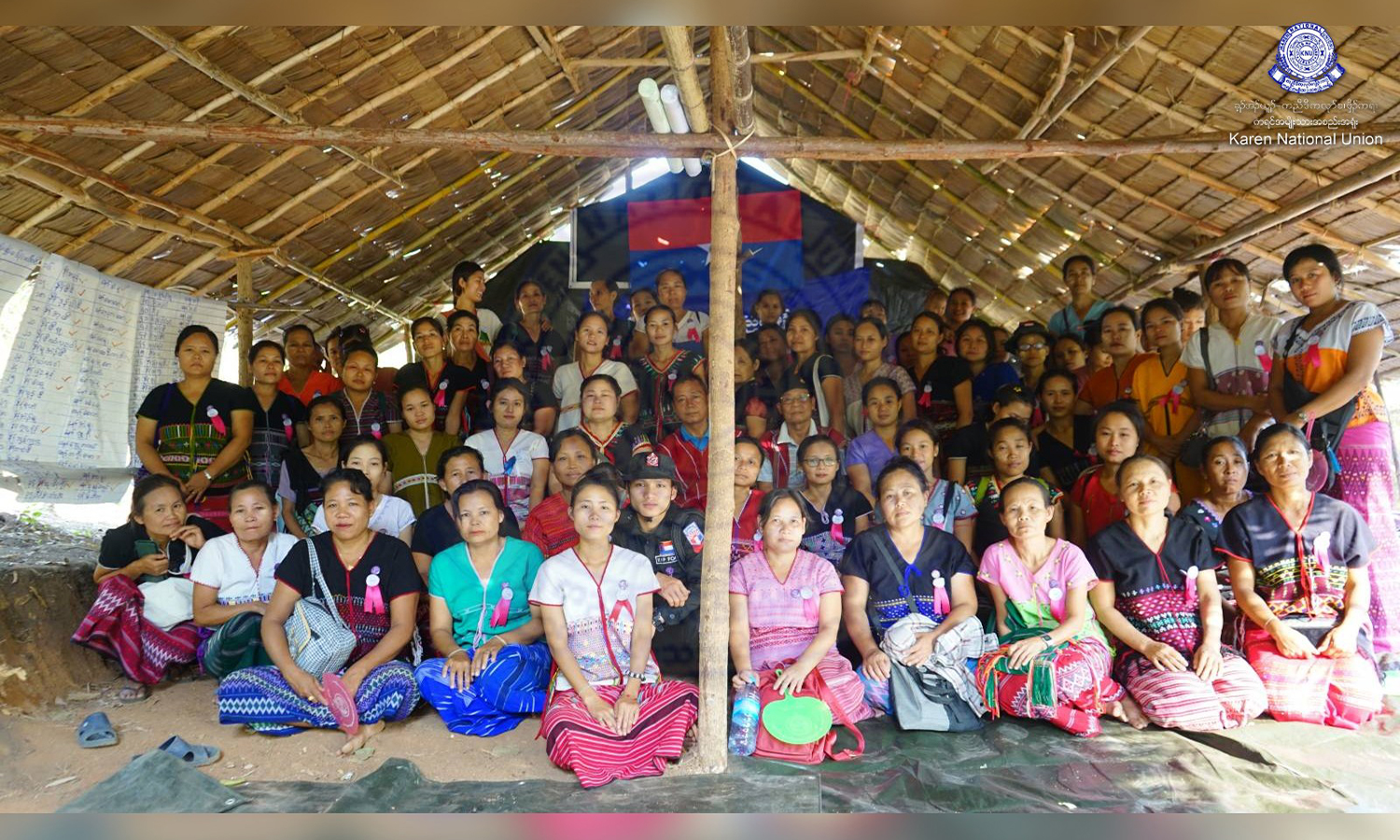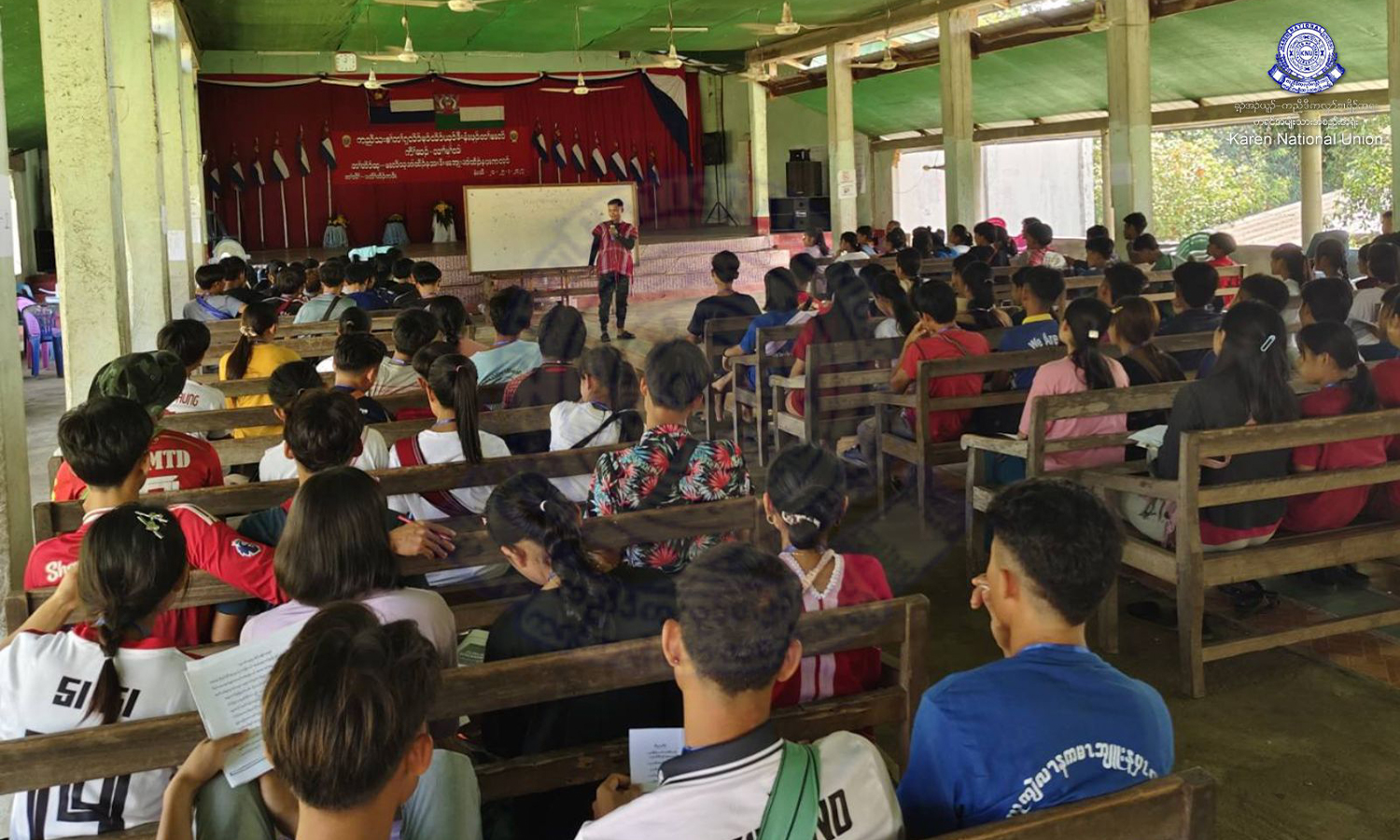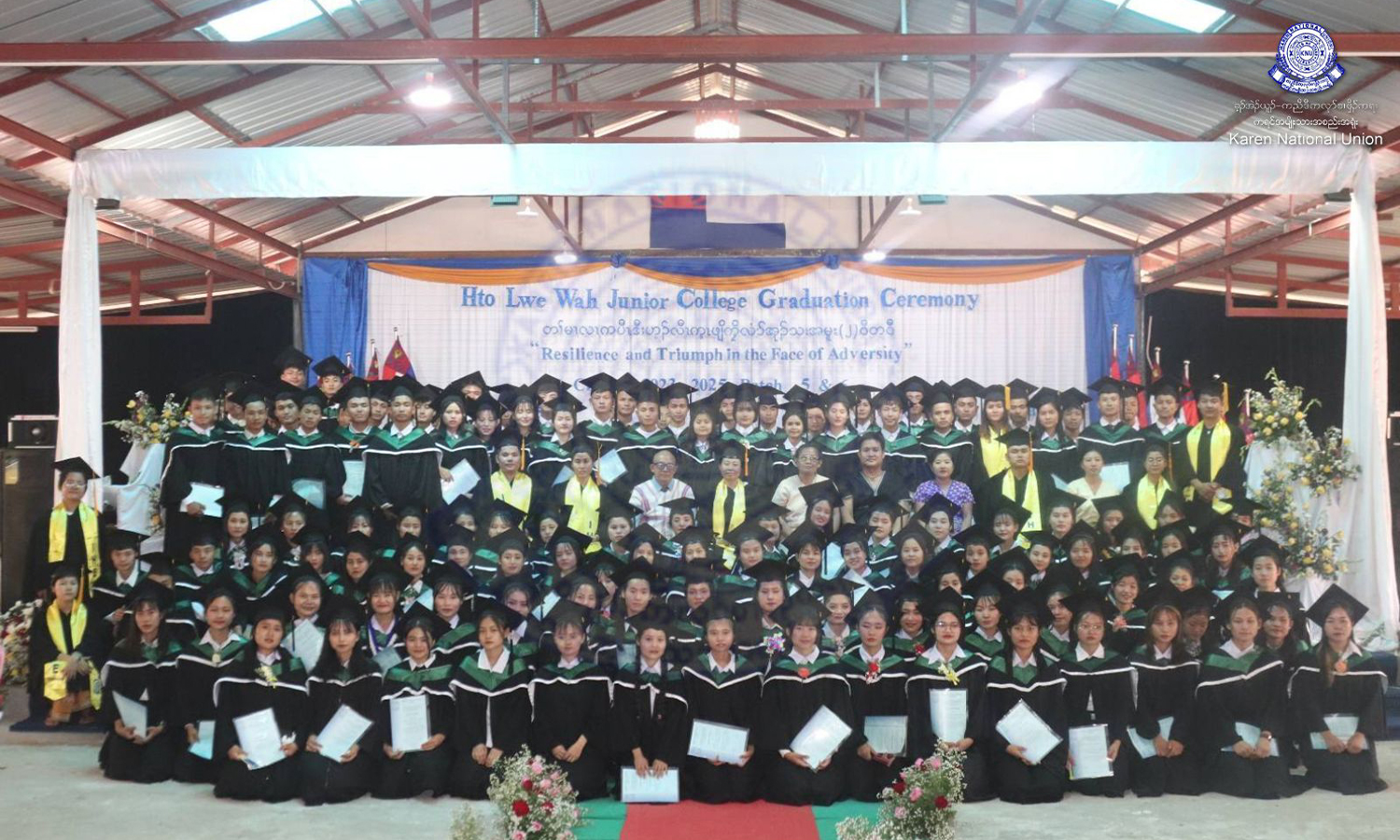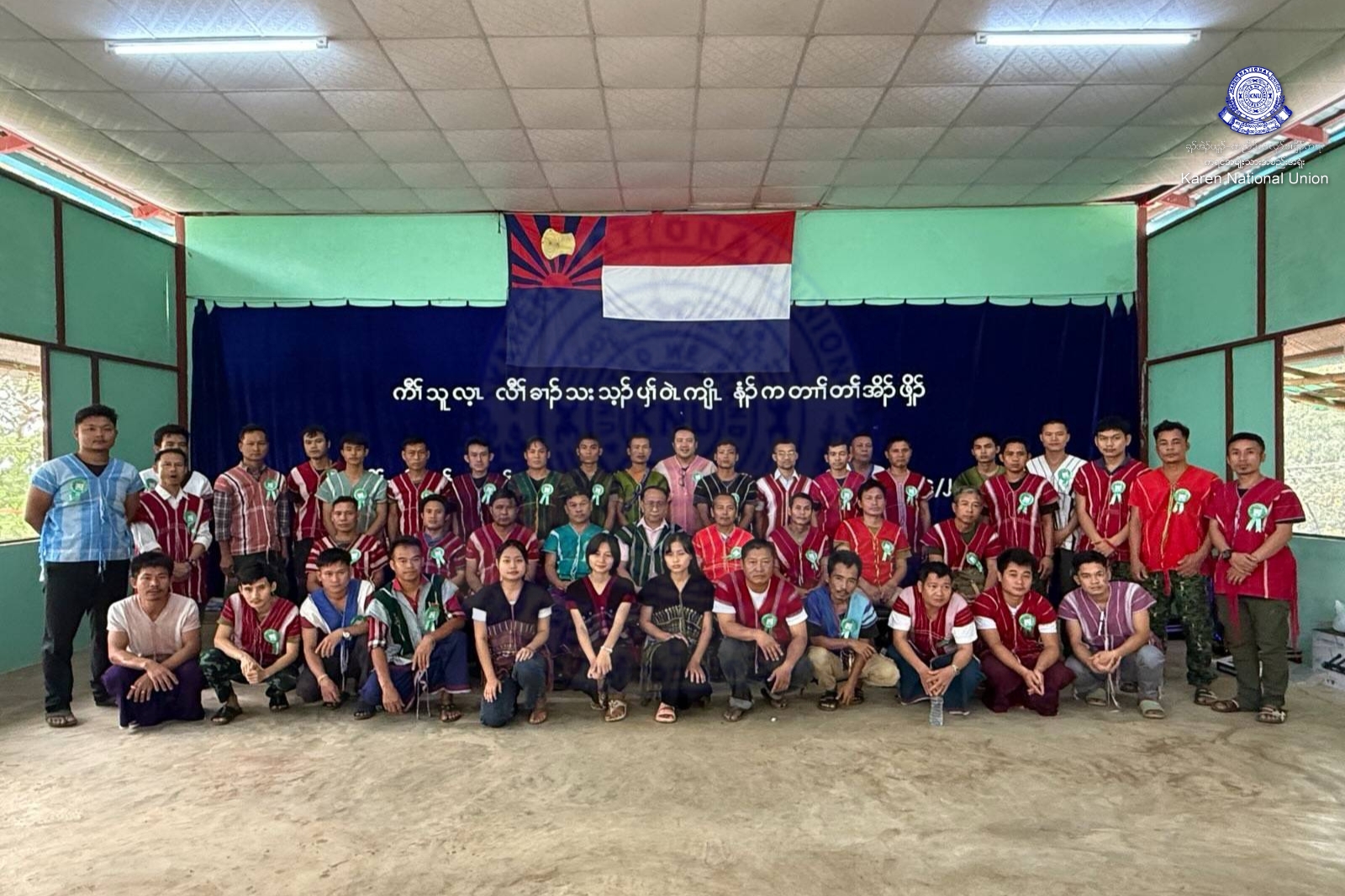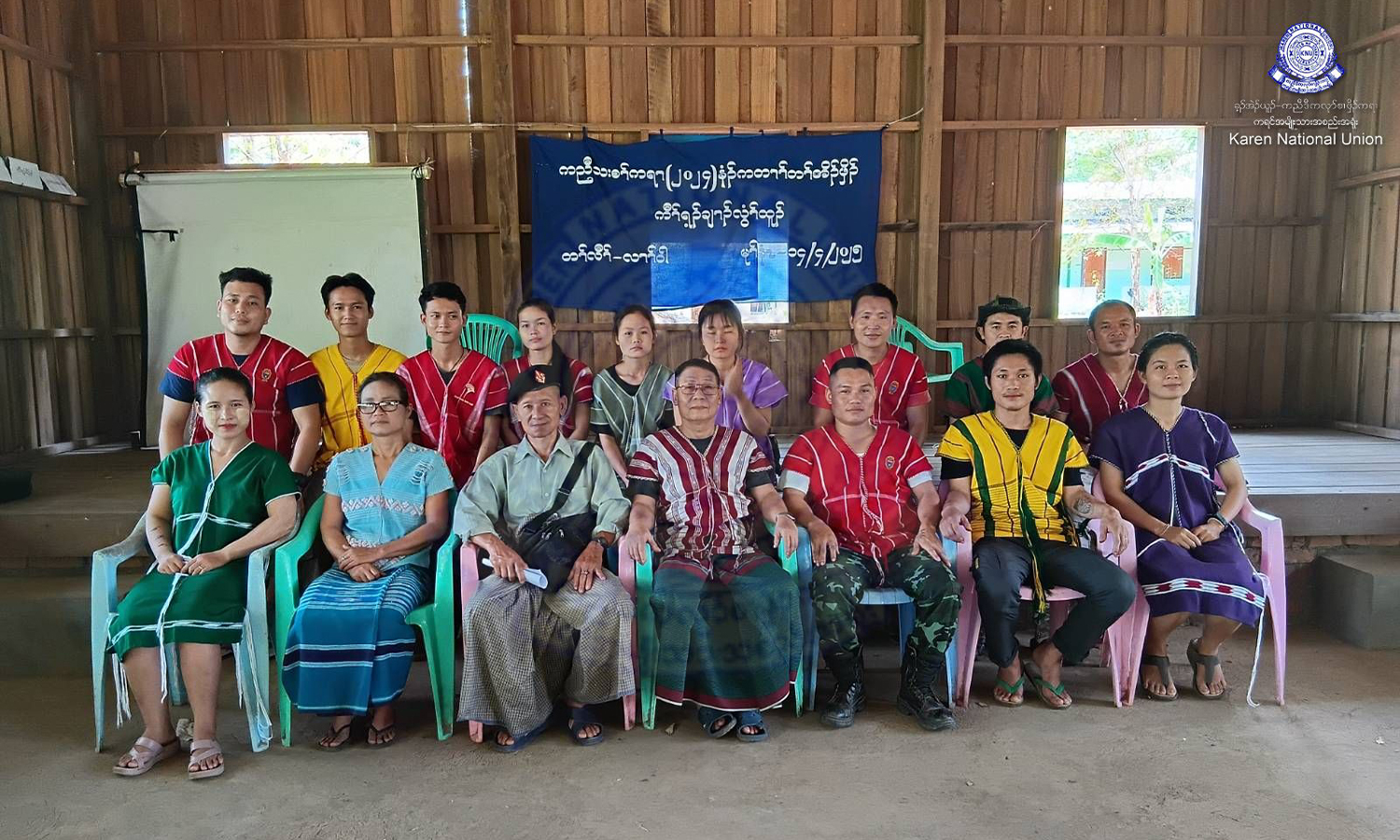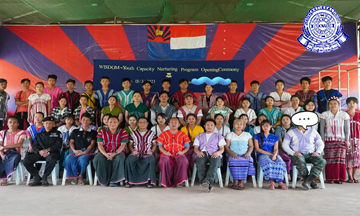 Districts
Districts
Wisdom: Youth Capacity Nurturing Program Opened in Kler Lwee Htu District
13 March 2023, KNU-Central
The opening ceremony of Wisdom: Youth Capacity Nurturing Program was held on March 13, 2023, in Kler Lwee Htu District, Kawthoolei.
Marked by the presence of school committees, the District Chairperson, District Secretary, district officials, instructors, and students, the inaugural session of the training school took place in 2023. Eligibility for attendance at the training school must be residents of the Karen National Union (KNU) administrative area, Kawthoolei.
The eligibility criteria for admission require applicants to be aged between 16 and 35 years, with a minimum educational qualification of at least passing the 8th grade in any educational system. Proficiency in reading, writing, listening, and speaking Sgaw Karen language is essential, along with a basic level of proficiency in Burmese. However, the program will include instruction in basic levels of Sgaw Karen, Burmese, and English. The training curriculum will be organized into four distinct parts, and the overall duration of the course is set at two years. Upon successful completion of each segment, participants will receive a certificate, and upon completion of all four parts, a certificate for the entire program will be awarded.
This program aims to achieve the following objectives:
1) Acquiring knowledge and comprehension of the Karen revolution's concept, as well as the principles embraced by the Karen National Union (KNU), encompassing mentality, politics, mobilization, technology, military affairs, and management and administration.
2) Applying the gained understanding of the Karen revolution, politics, and mentality to real-world scenarios within their respective regions.
3) Establishing a learning environment aligned with international standards, fostering continuous learning and development.
The training school will cover four distinct segments, each focusing on specific areas of study. The subjects covered in the first segment encompass fundamental skills in Sgaw Karen language (reading, writing, speaking), basic proficiency in Burmese language (reading, writing, speaking), foundational knowledge of English language (reading, writing, speaking), essential computer skills (typing, Microsoft Office tools, internet usage, email, and internet surfing), as well as topics such as the history of the Karen national movement, insights into the Karen National Union, self-modification, self-construction, and leadership.
The second segment of the program will cover subjects including the fundamental principles of federalism and the establishment of a federal system, the principles and practice of fiscal federalism, basic concepts and practices in management and planning, as well as discussions on justice, social justice, and transitional justice.
Within the third segment of the program, key topics to be covered include the fundamental concept of the human security sector, principles and international experiences related to security sector reform, self-defense techniques, medical courses, and territorial expertise.
The fourth segment of the program encompasses the study of ethnic histories, the fundamental concepts of peace-building, social harmony, conflict management, conflict resolution, and research.
Each program incorporates physical exercises, research, and practical fieldwork. Additionally, all participants in the program will acquire vocational skills, including training in agriculture and livestock management.
Establishing a Youth Capacity Nurturing Program training school will bring about a transformation in the knowledge, attitudes, and abilities of the youth in Kawthoolei. This change will serve as a pillar of support for the revolutionary efforts of the KNU, the Karen national movement, and regional development.




